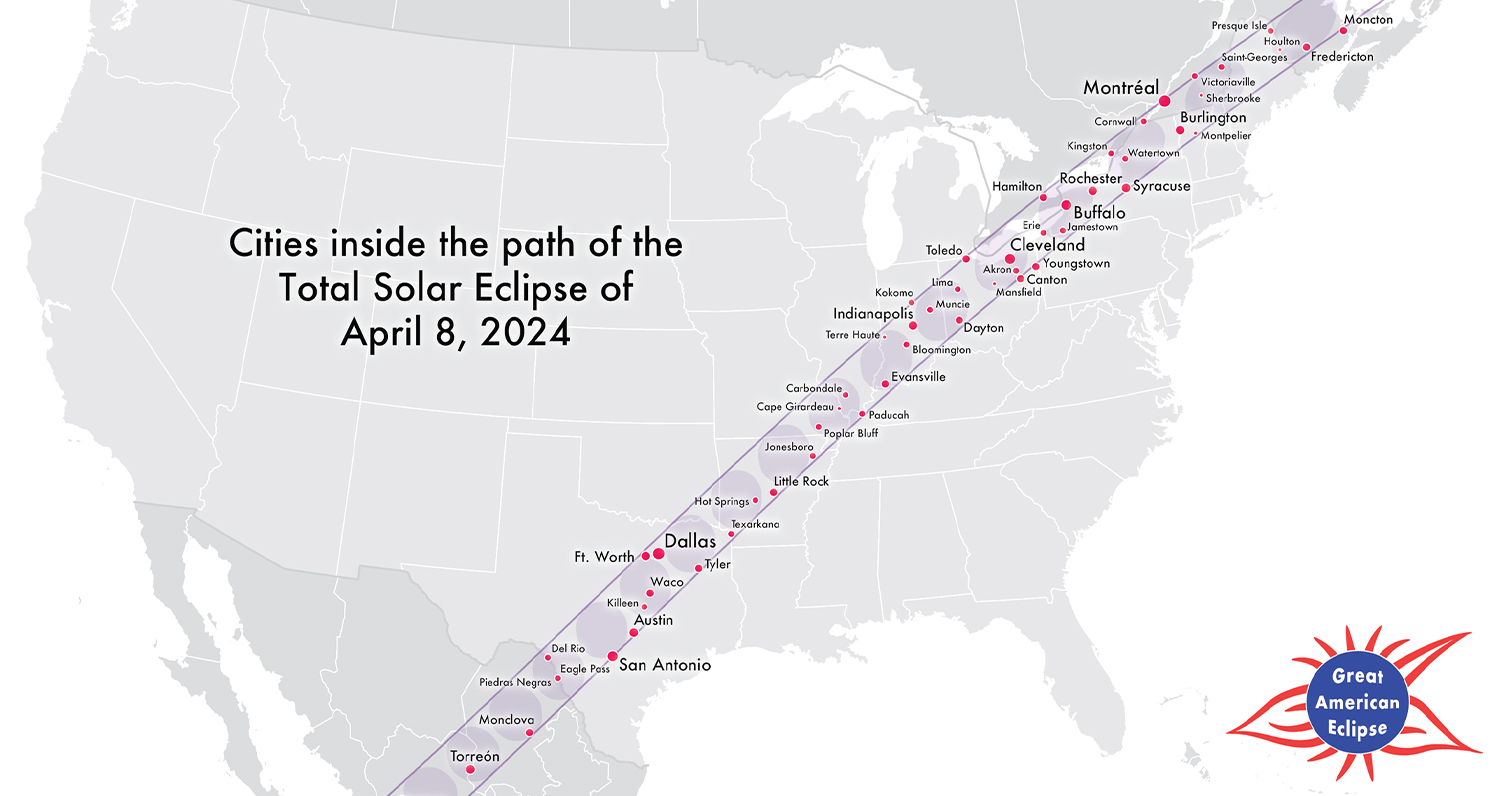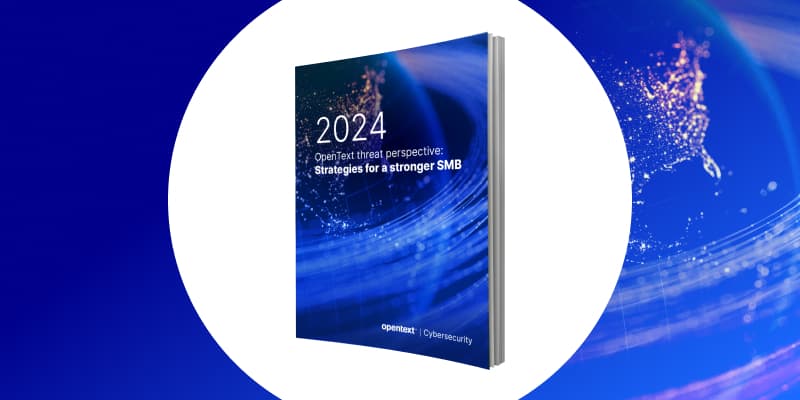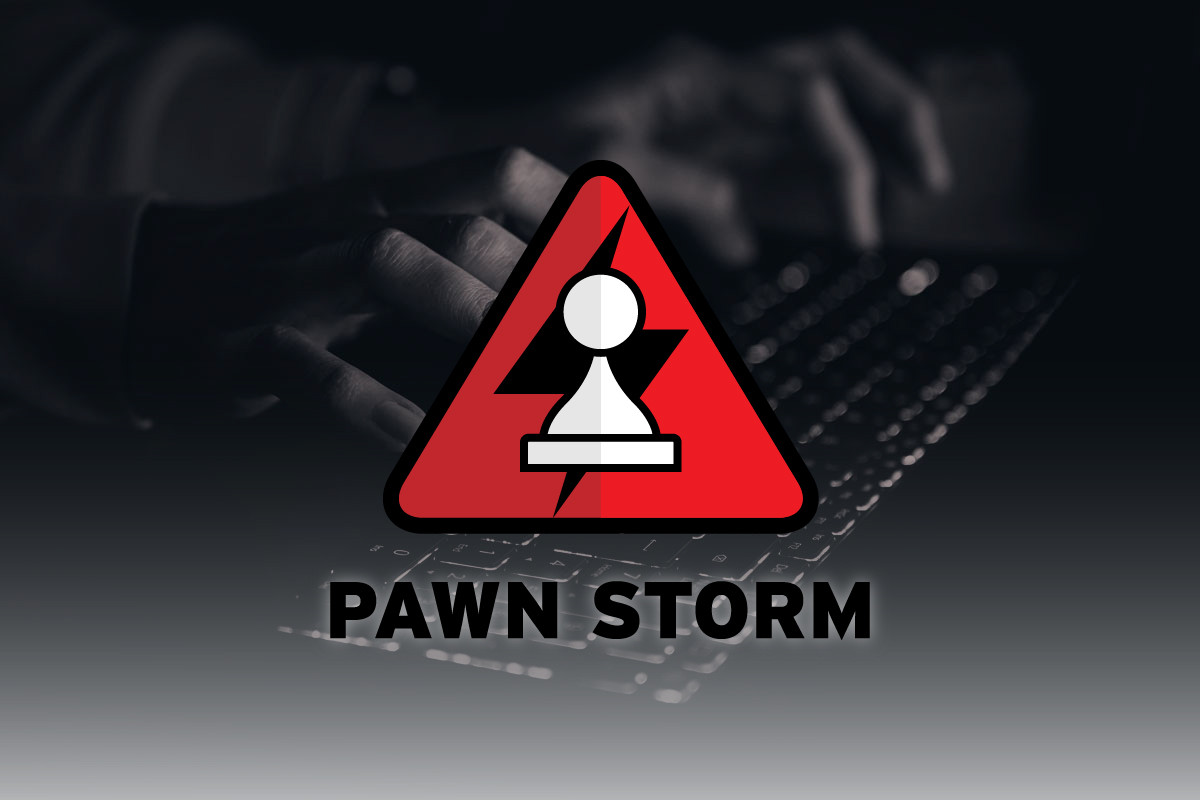
Scammers are turning a buck on the eclipse. A rash of eclipse scams have appeared online, many involving the sale of unsafe viewers and solar eclipse glasses.
With the eclipse making its way from Texas, through the Midwest, and up through the Northeast on April 8th, people increasingly want to get their hands on equipment to view it. And as it always is when it comes to big events and scarcity, scammers rush in.

A map of the eclipse path – GreatAmericanEclipse.com
As such, the Better Business Bureau (BBB) issued a consumer warning about the sale of cheap, knockoff solar eclipse glasses.i Worse yet, viewing the eclipse with these bogus glasses can harm your eyes. So as if getting ripped off wasn’t bad enough, this scam can damage a person’s vision.
Here, we’ll put you on the path to buying a safe set of viewing glasses — and offer several ways you can avoid buying knockoffs from a scammer.
Where can I buy sunglasses for the eclipse?
The American Astronomical Society has a list you’ll find helpful. With a visit to their page dedicated to suppliers of solar filters and viewers, you’ll have your pick of places where you can purchase. The list is long, featuring a mix of online and retail outlets where you can get safe, approved gear for viewing.
Also, check out the society’s page on safe viewing for the eclipse. It covers what you need to know to view the eclipse safely, from how to use a viewer, the ISO 12312-2 standard that all viewers must adhere to, and how to properly clean viewers so they remain safe.
Tips for buying safely for the eclipse.
How do so many scams ramp up so quickly for such a highly specific event? It doesn’t take much to spin up e-commerce sites and pump out ads nowadays. Thanks to a host of low-cost and easy-to-use tools for publishing and advertising online, scammers of all sizes can create bogus shopping experiences much more quickly than ever.
And as we’ve discussed so often in our blogs as of late, scams look and feel increasingly sophisticated today. AI gives scammers ready access to design tools, audio and video creation tools, copywriting bots, and more. Then add in the ease with which scammers can post their ads in search and on social media, and they have quick and ready ways of reaching potential victims.
Even so, a few extra steps and a bit of caution can help you avoid these scams.
1. Stick with known, legitimate retailers online.
This is a great piece of advice to start with. Directly typing in the correct address for online stores and retailers is a prime way to avoid scammers online. In the case of retailers that you don’t know much about, the BBB asks shoppers to do their research. Ensure that the retailer has a good reputation. The BBB makes that easier with a listing of retailers you can search by typing in their name.
2. Research new sellers for their history and reviews.
Never heard of that retailer before? See when they launched their website. A relatively new site might be a sign that it’s part of a scam.
A quick visit to the ICANN (Internet Corporation for Assigned Names and Numbers) website can show you certain background info for any website you type in. Given how quickly and easily scammers can register and launch a website, this kind of info can help you sniff out a scam.
Of course, it might also indicate a new business that’s entirely legitimate, so a little more digging is called for. That’s where reviews come in. Aside from the resources listed above, a simple web search of “[company name] reviews” or “[company name] scam” can help you discover if the retailer is legit.
3. Look for the lock icon in your browser when you shop.
Secure websites begin their addresses with “https,” not just “http.” That extra “s” stands for “secure,” which means that it uses a secure protocol for transmitting sensitive info like passwords, credit card numbers, and the like over the internet. It often appears as a little padlock icon in the address bar of your browser, so double-check for that. If you don’t see that it’s secure, it’s best to avoid making purchases on that website.
4. Pay with a credit card instead of your debit card.
Credit cards offer fraud protections that debit cards don’t. Another key difference: when fraud occurs with a debit card, you fight to get your money back — it’s gone straight out of your account. With a credit card, the issuer fights to get their money back. They’re the ones who take the financial hit.
Additionally, in the U.S., the Fair Credit Billing Act offers the public protection against fraudulent charges on credit cards. The act gives citizens the power to dispute charges over $50 for goods and services that were never delivered or otherwise billed incorrectly. Note that many credit card companies have their own policies that improve upon the Fair Credit Billing Act as well. However, debit cards aren’t afforded the same protection under the Act. Avoid using a debit card while shopping online and use your credit card instead.
5. Protect your devices for shopping.
A complete suite of online protection software like McAfee+ can offer layers of extra security while you shop. It includes scam protection that can block malicious and questionable links that might lead you down the road to malware or a phishing scam — along with a password manager that can create and securely store strong, unique passwords.
Booking a place to see the eclipse? Here’s an online rental scam you should know about.
If you have some last-minute bookings and travel in your plans for the eclipse, look out for online rental fraud scams. With a few images cobbled together from the internet, scammers list phony properties and seek to get paid outside legitimate rental platforms — leaving you short of funds and short of a place to stay when you finally arrive.
You can avoid these scams rather easily. Trust a trusted platform. Book your vacation rental through a reputable outlet. Vacation rental platforms like Airbnb and VRBO have policies and processes in place that protect renters from scammers.
You have several other ways you can avoid booking scams …
First, look at the listing.
Do the photos look grainy or like they came from a magazine? Do a reverse image search on the photo and see what comes up. It might be a piece of stock photography designed to trick you into thinking it was taken at an actual property for rent. Also, read the reviews for the property. Listings with no reviews are a red flag.
Only communicate on the platform.
The moment a host asks to communicate outside of the platform is another red flag. Scammers will try to lure you off the platform where they can request payment in forms that are difficult to recover or trace after you realize you’ve been scammed. That includes methods such as certified checks, money transfers like Western Union, and online payment apps like Zelle. Generally, when that money is gone, it’s gone for good.
Only pay on the platform.
Likewise, paying for your rental outside the platform might also go against the terms of service, as in the case of Airbnb. Or, as with VRBO, paying outside the platform voids their “Book with Confidence Guarantee,” which offers you certain protections. Use the platform to pay and use a credit card when you do. In the U.S., the Fair Credit Billing Act allows you to dispute charges. Additionally, some credit cards offer their own anti-fraud protections that can help you dispute a billing.
Shop for the eclipse with extra care.
With big events comes scarcity. Postseason sports and merch. Holiday shopping and hot gifts. Vacation time and rentals at popular destinations. Scammers love this combination. With people in a rush to buy or book, scammers take advantage. As we now see, we can add eclipses to that list, just as we saw with the 2017 eclipse.
In addition to the advice above, take your time and ensure a safe purchase. Given that variants of this scam involve phony, unsafe viewing glasses, take the extra care that your vision absolutely deserves. Go with a reputable retailer with ISO-approved lenses.
The post How to Avoid Solar Eclipse Scams appeared first on McAfee Blog.






